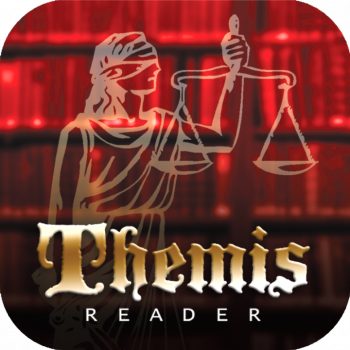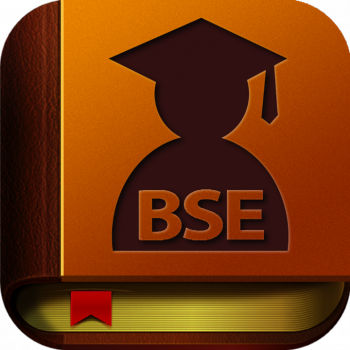Southeast Asia's most expensive app also provides free textbooks for students. This is the story of MahoniWould it surprise you to know that a digital law text library is the most expensive app in Southeast Asia? Ginting Sadtyono, co-founder of Surabaya-based Mahoni, the mobile app development firm that created it, doesn?t shy away from sharing such a superlative. He explains, "I got the idea when I visited a friend of mine who is a lawyer. He spent an hour, maybe more, looking for just one chapter in one of his law books." It turned out the book was borrowed by another client, but to Sadtyono, the experience illuminated a problem that needed to be solved.
Themis Reader has essentially digitized more than 10,000 legal documents and regulations made by the Indonesian government into one app with a searchable library. According to Sadtyono, the app has proven useful not only for lawyers, but also many other business professionals in the archipelago. "Each book costs 3 million Rupiah (US$258) to download because the information is so useful and hard to find," he says.
Last year, Mahoni recorded an average of 2,000 daily downloads across its 50-plus published apps. Sadtyono declined to comment on how many downloads Themis Reader itself has received since its inception in May 2013. But his fellow co-founder Suratso Santoso tells Tech in Asia that the people who use Themis reader are deriving their own profits directly from the app, and that the steep price tag is justified for judges, lawyers, and legislative professionals who desire actionable intel at the swipe of a screen.
 The dawn of digital reading
The dawn of digital reading Sadtyono and Santoso met more than 20 years ago, when they were both the young distributors for Apple in Indonesia ? just a couple years before Steve Jobs made his return to the then-struggling company.
Santoso and Sadtyono became friends during their time at Apple, and eventually moved on to other distribution gigs together, including Kodak digital cameras. In the late 1990s, Sadtyono became interested in the idea of electronic documents and kept his eye on new tech products related to ereading. At the time, Adobe had just released its PDF format for digital documents and companies were beginning to file their invoices and work orders electronically. In 2001, Santoso and Sadtyono registered the domain name Mahoni.com.
In 2007, when the iPhone launched, Santyono recognized its huge potential as more than just a phone, but a pocketable computer. ?I thought the iPhone was half computer, because of the apps inside [...] After we saw the iPhone, we got interest to build a company that 100 percent developed mobile apps.? It wasn?t until 2010, when Apple announced the iPad, that Mahoni decided to get aggressive about ereader platforms.
Sadtyono explains his rationale behind Mahoni?s ereader apps as riding the wave of the future. ?In America, Newsweek stopped running its paper-based magazine,? he says. ?We believe the same will happen here in Indonesia soon. All paper-based products will soon move to digital, and all paper books will move to ebooks.?
Sadtyono explains his rationale behind Mahoni?s ereader apps as riding the wave of the future. ?In America, Newsweek stopped running its paper-based magazine,? he says. ?We believe the same will happen here in Indonesia soon. All paper-based products will soon move to digital, and all paper books will move to ebooks.?
Balancing the scales
While Mahoni?s Themis Reader is extraordinarily expensive when compared to other ereader apps, the company has also published Buku Sekolah Elektronik (BSE), an app that provides Indonesian students and teachers access to more than 1,000 educational ebooks for free.
Sadtyono says currently the app serves more than 50 million people. According to him, since BSE?s release late last year there have been 4 million books downloaded from its server. Traffic as of July 2014 reached an average of nearly 100 terabytes daily, which means if one book is approximately 5MB in size, roughly 20,000 books are downloaded from BSE every day.
Somewhere in between Mahoni?s elite moneymaker and philanthropy project sits its other ereader apps Majalah Indonesia and Toko Buku, similar to SCOOP newsstand and Wayang Force respectively. Sadtyono is proud of the add-ons he has successfully incorporated into Toko Buku, including widgets to add ambient background sounds (beach, rainforest, etc.) to the reading experience, and new tools for highlighting text and adding notes in the books users have purchased.
According to Sadtyono, Mahoni (the Indonesian word for ?mahogany,? a subtle suggestion that the company will save Indonesia?s trees), has been a 100 percent bootstrapped venture to date and is not looking to slow down anytime soon. Regarding investment potential, Sadtyono says, ?We don?t need it, but I think if we have investors we can grow even faster. Right now we?re just focusing on some quite exciting new apps that I will let you know about soon.?
Editing by J.T. Quigley and Steven Millward
Read more: Southeast Asia?s most expensive app also provides free textbooks for students. This is the story of Mahoni
http://www.techinasia.com/mahoni-indonesia-app-developer-ebooks-emagazines-themis-reader-buku-sekolah-elektronik-toko-buku-majalah/